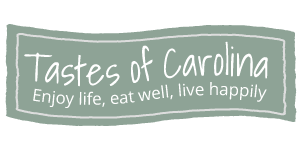Honey. I just love it. As a child I used to eat spoonfuls of the stuff straight from the pot. It was a thick, golden set honey we would buy from the mountains, full of the scent of the millions of tiny alpine flowers which transform the Italian peaks into miniature gardens of Eden in late spring and early summer.
I was used to coming across hives on mountain hikes and during my lazy afternoon strolls in the countryside. Never before I came to London I saw hives in a city. By then the stories of colony collapse in the US and the dangers of mite and fungal infections made headlines everywhere across Europe. City bees were the unexpected survivors, relatively untouched by the neonicotinoids’ scourge that made their country cousins weaker and more susceptible to disease.
For this reason, urban beekeeping quickly became trendy. Anyone with a commitment to self sustainability and a rooftop to match got a beehive. But instead of getting a hive, many of these people, according to Dale Gibson of Bermondsey Street Bees, should first make sure bees have enough to eat. Before I walked into Dale and his wife Sarah’s townhouse in the shadow of the Shard (and with hives on the rooftop), little did I know that bees in London already give the lowest honey yield in the country. As they explained, a low yield is a symptom of little forage, and after too long a time spent scrambling for food, bees get smaller, weaker, and more prone to getting sick. As they get hungry, they also become angrier, which is never good news for the keeper.
With the spectre of colony collapse always around the corner Dale, who approached beekeeping with a stockbroker mindset, set about understanding what makes bees happy. In a spreadsheet he listed factors such as access to a variety of forage all year round, low hive density, wind and access to water. He gave each of these factors a weight according to its importance and came up with the Apis Forage Index, a tool for aspiring beekeepers to measure how suitable their location would be for an apiary. If you’re interested in finding out how well your bees would fare, you can download a starter version of the index from their site, complete the test and if you get 55% or more your hive is classed as sustainable. The aim, Dale stresses, is not to discourage potential competitors to his business. On the contrary, the Index is there to get people at least thinking about these factors, and encourage them to prioritise the planting of trees and flowers for forage before they start beekeeping.
At Bermondsey Street Bees, “plant before you breed” became a motto. Sarah and Dale have an allotment in Bermondsey Spa full of fruit trees and flowers that provide year round forage and are also collaborating and receiving sponsorship from local government, charities and private bodies for various public gardening schemes. These projects are also a fun way to involve their two sons and their friends who turn up to help them dig and plant. Hannah Rhodes of Hiver Beers, who makes a delicious range of refreshing beers using their honeys, often lends a helping hand too.
Sarah and Dale’s company, set up eight years ago after a eureka moment in their Bermondsey allotment, also provides a consultancy service to aspiring beekeepers, helping them set up sustainable apiaries. Apart from their award winning own honey (always raw and unprocessed) they also sell a line of guest honeys under the Metro (urban) and Union (country honey) labels. This ensures a degree of stability in their supply, in a business where other more careless producers regard losing a hive as a routine danger of the trade.
Amongst Dale’s clients are some of Britain’s best chefs. Tom Aikens at Soho Farmouse, Tom Kerridge (he buys their honey while his wife gets their beeswax for her sculptures) and Daniel Clifford are in his contact book. To Soho Farmhouse in particular, Dale is offering a full consultancy, helping them set up and manage a number of hives for their Cotswolds kitchen gardens.
Although they love the city, Dale and Sarah often escape to the countryside: they have another apiary in the Suffolk, where Sarah rediscovered her love for gardening. Not that the bees are always appreciative. Sometimes they end up ignoring what she lovingly plants for them and feed across the road. “I just try not to take it personally”, she sighs. Those ruthless and pragmatic creatures. But what a sweet bounty they make.
Visit their website for planting guides to bee-friendly urban and country gardens. And remember this curiosity: since bees can see blues and purples better than other colours, flowers of these shades also generally tend to be best for them.




